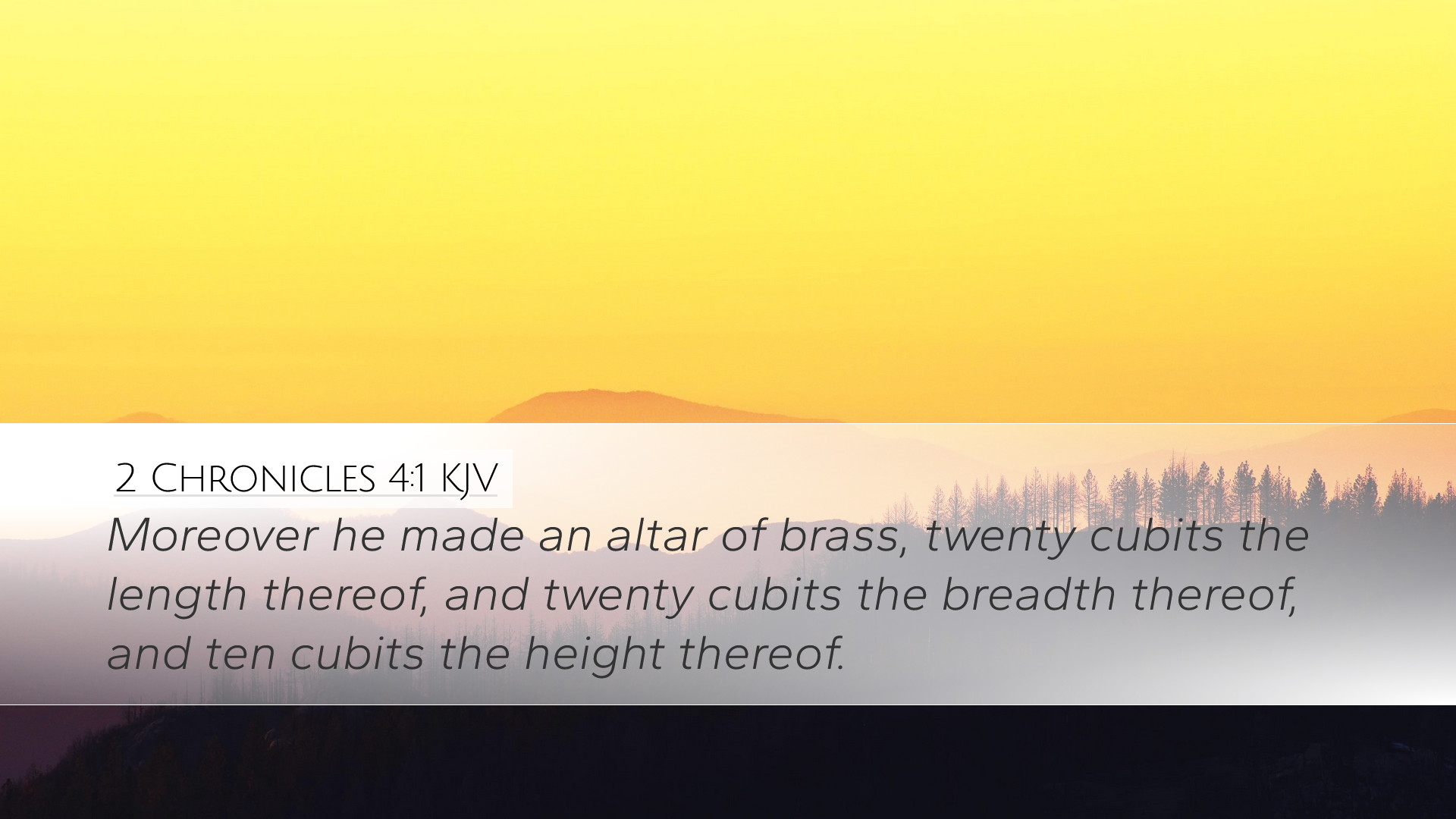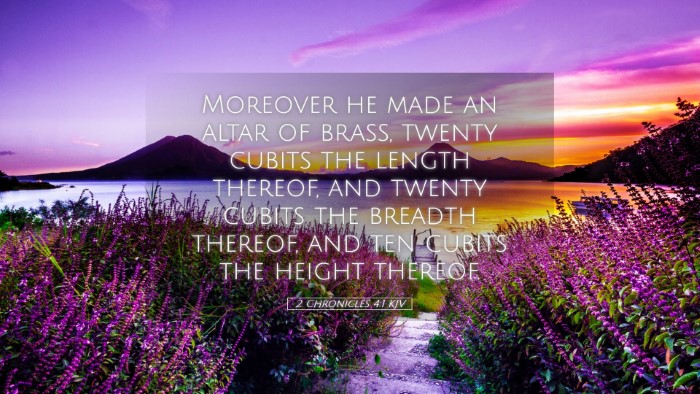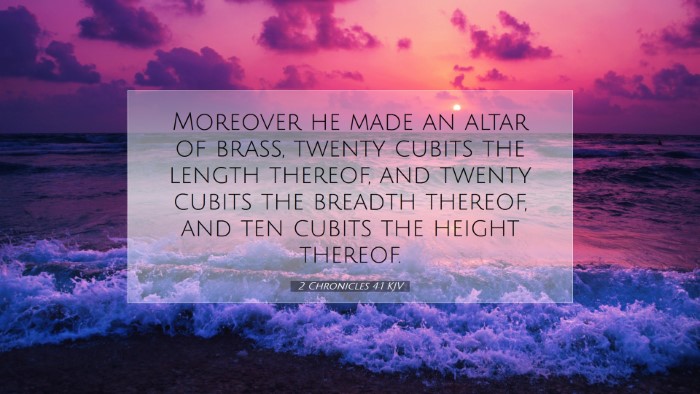Commentary on 2 Chronicles 4:1
Verse Overview: 2 Chronicles 4:1 states, "Moreover, he made an altar of bronze, twenty cubits long, and twenty cubits wide, and ten cubits high." This verse marks a significant moment in the construction of the Temple in Jerusalem under King Solomon. It speaks to the grandeur and purpose of the Temple, highlighting a key component of Israelite worship.
Historical Context
The construction of the Temple represents one of the pivotal moments in the history of Israel. After David's desire to build a temple for God was redirected to his son Solomon, the actual work commenced. Understanding the cultural and religious significance of this undertaking aids in grasping the depth of Solomon’s devotion.
Interpretive Insights
- Matthew Henry's Commentary:
Matthew Henry notes that the bronze altar was a manifestation of the Israelites' sacrificial system. He emphasizes that it symbolizes God's acceptance and desire for a dwelling among His people. The altar's dimensions reflect a place of significant worship, large enough to accommodate the numerous sacrifices that would be offered there.
- Albert Barnes' Notes:
Barnes elaborates on the practical aspects of the altar. He mentions that the construction of such a large altar was essential for the nation, as the offerings and sacrifices were central to their covenant relationship with God. The altar's bronze composition also indicates durability and a connection to the means of purification.
- Adam Clarke's Commentary:
Clarke dives deeper into symbolic implications, suggesting that the size of the altar points to God’s immeasurable grace. Additionally, he remarks on the commonality of bronze as a material for altars, drawing on its historical use in ancient times. Clarke interprets the altar as a foreshadowing of Christ, the ultimate sacrifice, establishing the altar as a central fixture for worship and intercession.
Theological Implications
This verse invites reflection on several theological themes that are critical for pastors, students, theologians, and scholars:
- The Nature of Worship:
The construction of the bronze altar illustrates the seriousness with which the Israelites approached worship. It serves as a reminder of the cost of sacrifice and the necessity of a holy approach to God. Worship in the Old Testament was not merely ritualistic but deeply relational, requiring reverent acknowledgment of God's holiness.
- God’s Desire to Dwell With His People:
The altar signifies God’s desire to dwell among His people, a recurring theme throughout the Scriptures. From the tabernacle in the wilderness to the final Temple, God's initiative to inhabit the earth signals His relational commitment to humanity.
- Foreshadowing Christ:
As noted by Clarke, the altar serves as a type of Christ, emphasizing the sacrificial system that ultimately points to the New Covenant. The significance of sacrifice in the Old Testament prepares believers for the profound implications of Christ's ultimate sacrifice on the cross.
Application for Today
For contemporary believers and leaders, this verse challenges us to consider several aspects of our worship practices and community life:
- Reverence in Worship:
As we gather for worship, we should cultivate an attitude of reverence. The scale and grandeur of the bronze altar remind us to approach worship with awe and respect for the holiness of God.
- Community and Sacrifice:
The communal aspect of worship requiring sacrifices teaches us about the importance of community in faith practices. We are reminded that our worship is not just individual but collective, involving the entire body of Christ.
- Preparation for Encounter:
Finally, we are called to prepare ourselves for an encounter with the living God. The altar was the place of sacrifice; likewise, we are invited to lay down our lives as living sacrifices, as per Romans 12:1, in response to His mercies.
Conclusion
2 Chronicles 4:1 serves as a profound reminder of God's holiness, the seriousness of worship, and the anticipation of Christ's atoning work. By reflecting on the significance of the bronze altar, we are drawn into deeper understanding and appreciation of our covenant relationship with God.


